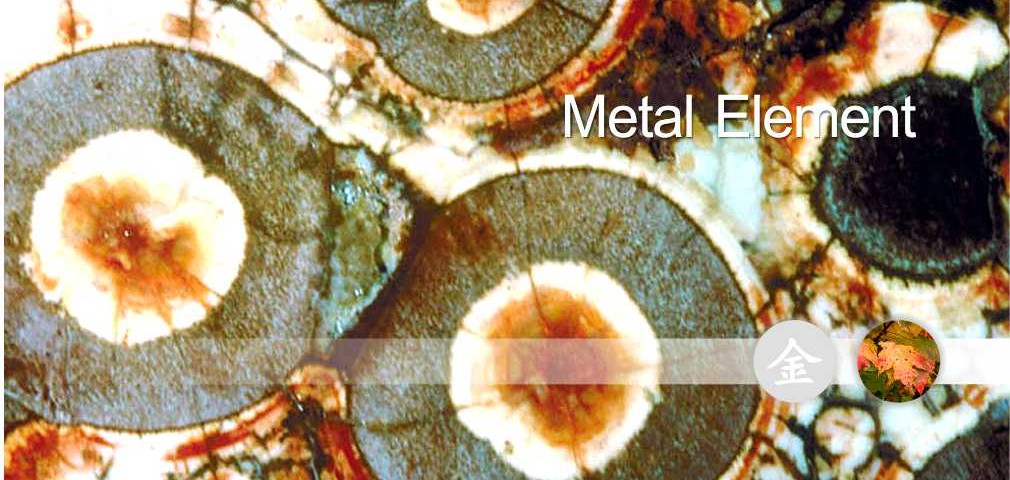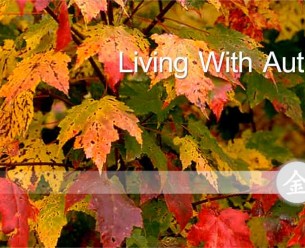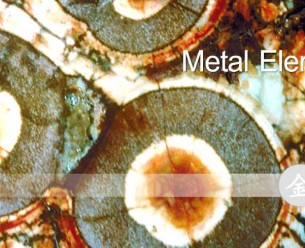The Importance of the Lungs
In Chinese Medicine, the Lungs are sometimes referred to as ‘The tender Organ’. This is in recognition of the fact that in the Chinese system, they are the only major organ that is in constant contact with the outside world and all the possible contaminates and pollutants this may contain. From our understanding of Western medicine, we can see that the respiratory system is designed to mitigate these risks, with high levels of immune defences. In Chinese Medicine, the Lungs are closely linked to both the skin and the immune system of the entire body.
The peak time for the Lungs is from 3-5am
The Role of the Lungs
The Lungs fall into the element of Metal and the other organ associated with them is the Large Intestine.
We have already touched on the two major roles of the Lungs in Chinese Medicine. Firstly, they are in charge of taking in ‘Heavenly Qi’ and distributing it throughout the body. From this, we can see that the Lungs are about inspiration in both a lateral and a metaphorical sense. This may begin to make sense of the link to metal or gold. The Lungs help to inspire us – they help us to take in the precious moments of wonder that make life valuable and allow us to judge the inherent value in ourselves and others.
Secondly, the Lungs are also linked to both the skin and the immune system, making them pivotal in defending the body from external attack. This brings to mind the other great strength of metal – its ability to protect.
Qi
Before moving on to look at the function of the Lungs, it will probably be helpful to first take a closer look at the Chinese concept of Qi or energy.
This topic can get a little complicated because there seem to be numerous types of this elusive ‘stuff’.
Essentially, there are three different sources of Qi:
Qi from the air we breathe = Heavenly Qi
Qi from the food we eat = Gu Qi
Constitutional Qi we are born with = Yuan Qi
This picture then gets a little more complicated because names are also given to Qi depending on where it resides:
All Qi that is inside the body = Nei Qi
The Qi of the chest = Zong Qi
The Qi that circulates through the body = Zhen Qi
Qi that is outside the body (the aura) = Wai Qi
And according to what it does:
The Zhen or True Qi is further broken down in to two categories according to role:
The Qi that nourishes the internal aspects of the body is called Nutritive or Ying Qi. Ying Qi is closely linked to the blood and is more Yin in nature than Wei Qi.
Wei or protective Qi, flows partly in the channels but is also said to circulate under the skin forming an energetic protection against external attack. Wei Qi is closely linked to what we would understand as the immune system. It warms, moistens and nourishes the skin and muscles and helps to control body temperature through sweating.
Function of the Lungs
1. Governs Respiration and Qi
The function of governing respiration is essentially the same as the role of the Lungs in Western medicine. The Lungs take in air from our environment, and exhale waste carbon dioxide. Air, in Chinese philosophy, is considered ‘Heavenly’ and provides one of the life giving forms of Qi.
It is said that this Heavenly Qi combines with the Gu Qi taken from food, in the Lungs, to produce Zong Qi. The whole process is fuelled by Yuan Qi from the Kidneys.
Zong Qi is also known as Chest Qi and is therefore particularly important for the Lungs and the Heart. It is said to control the automatic functioning of these two major organs. The strength of the Zong Qi therefore reflects the health of the Qi of the Lungs and the Heart.
Symptoms of weak Zong Qi include: a weak voice and cold hands.
The Zong Qi, is transformed again into the Zhen Qi that is sent out to all other parts of the body – mainly via the meridians.
This whole process begins with the Heavenly Qi of the Lungs, which is why they are said to govern Qi and respiration.
If we think for a minute about the Western understanding of the link between the lungs and energy, we can see that there are in fact some similarities. Obviously, the lungs are the organ that provides the rest of the body with oxygen, in what is known as ‘primary respiration’. Western medicine also talks about a process known as ‘secondary respiration’ that happens in virtually every cell of the body. Interestingly this is where basic nutrients that we obtain from food (Gu Qi) are combined with oxygen (Heavenly Qi) to produce ATP’s. ATP’s provide the energy that fuel all the processes that go on within the cell – much like Qi…
2. Controls the Channels and the Blood Vessels
As we have already said, the Lungs influence the channels because of the role they play in providing and circulating the Qi that flows through them. We have also seen how the Lungs are linked to the Heart by the Zong Qi that Ying Qi is made from. Similarly, Ying Qi is also required for the smooth, efficient flow of blood through the blood vessels. As already mentioned, a weakness in Zong Qi can lead to cold extremities, precisely because there is not enough strength to ‘push’ the blood to those areas.
3. Controls Descending and Dispersing
The Lungs inspire Heavenly Qi that is then mixed with Gu Qi to produce Zong Qi. Zong Qi is then refined further to produce Zhen Qi. Zhen Qi is refined into Wei and Ying Qi which the Lungs send out to the rest of the body, through the blood vessels (Ying Qi) the meridians (Wei and Ying Qi) and through the skin and muscles (Wei Qi). The direction of this movement of Qi is down and out – Therefore, the Lungs control descending and dispersing. Another way of putting this is that the direction of the current of Lung Qi is down and out. Although the Lungs send energy to all the body, there is a particular link to both the Kidneys and The Large Intestine. It is said that the Kidneys are responsible for ‘grasping’ the inhaled breath as it moves down and into the body. This means that conditions where inhalation are difficult may be attributed to Kidney weakness, not Lung problems, in Chinese Medicine. As we have also seen, this link to the Kidneys is a closed loop as the process of Qi production is fuelled by the Yuan Qi which is stored in the Kidneys. The Large Intestine is the paired organ of the Lungs – Whilst the role of the Lungs is to inspire the Large Intestine is the organ of expiration – Taking in and letting go are closely linked, and the Large Intestine needs sufficient Qi to be able to function correctly, and ‘let go’ of toxic unnecessary wastes. If descending and dispersing are inhibited, the natural direction of flow in the Lungs will be reversed, leading to coughing, choking or congestion.
4. Regulates the water passages
In this function, there is another link between the Lungs and the Kidneys. As well as the descending and dispersing of Qi, the Lungs are responsible for descending and dispersing body fluids. Body Fluids are said to originate in the Stomach. They are sent up to the Lungs by the Spleen to be transformed. Following this process, Body Fluids are sent down to the Kidneys and Bladder. Waste water is eliminated by the Bladder and ‘pure’ water is heated into a ‘mist’ by the Kidneys and sent back to the Lungs to be distributed to moisten the muscles and the skin. When necessary, the Lungs can also eliminate this fluid from the body via sweat.
5. Dominates skin and hair
This role combines several of the others. As we have seen the Lungs keep the skin and the hair moist and nourished, therefore the health of the Lungs is reflected in their condition. The Lungs are also in charge of the pores due to their role in controlling the water passages. Most importantly, perhaps, the Lungs are in charge of the Wei Q that circulates under the skin and protects us from attack. As in Western Medicine, the skin and body hair also play an extremely important role in protecting the body from external attack.
6. Opens into the nose
Again, here we can see the link to the Western version of the respiratory system. The nose is the obvious organ of the Lungs and strong Lung Qi will allow an acute sense of smell and a strong clear resonant voice, ‘like a bell’…
7. Houses the Corporeal Soul (Po)
In Chinese Medicine, each of the Yin organs is also responsible for an aspect of the persons ‘soul’. The Po is the most ‘Yin’ of all these aspects, which means it is the most ‘dense’ or material. Through the Lungs and the breath, the Po is the spiritual link to the vital autonomic functioning of the human being. Breathing is the only major automatic function of the body that can also be easily controlled at will. Breath is effected by our emotions, and sadness and grief particularly will affect the rhythm of our breathing and disturb the Po.
The Po is also the only aspect of spirit that dies with the body, in this way we might link it to the ego. This link can be seen in the connection to the breath. The tendency of the ego is to ‘hold on’ to every persevered insult or injury, we retell ourselves the same upsetting stories over and over again, wallowing in our anger, grief, or disappointment. Throughout this time, or breath will be adversely effected. It is only by learning to ‘let go’ of the ego’s attachment to our negative emotions, that we can return to quiet natural breathing and a more tranquil state of being. This also shows the power of spiritual practices that focus attention on the breath as a way of diminishing the power of the ego.




